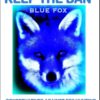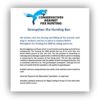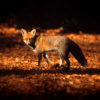A history of the campaign from the website of IFAW
 1660s – Hounds are first trained to specifically hunt foxes.
1660s – Hounds are first trained to specifically hunt foxes.
1750s – Modern day fox hunting is introduced and spreads across the UK.
1835 – Parliament bans bear and bull baiting in the UK.
1836 – The Waterloo Cup hare coursing event is held for the first time.
1849 – Cock fighting becomes illegal in the UK
1928 – Mink are introduced to the UK from North America to be farmed for fur. They later escape and establish themselves across most of Britain.
1949 – Two private member’s bills to ban or restrict hunting fail to become law. One is withdrawn and the other is defeated on its second reading in the Commons.
1959 – Deer hunting with dogs is banned in Scotland.
1970 – The House of Commons votes for legislation to ban hare coursing, but the bill runs out of time when a general election is called.
1978 – Otter hunting becomes illegal in England and Wales. Otterhound packs switch to hunting mink.
1989 – IFAW starts campaigning for a total ban on hunting with dogs.
1992 – A private member’s bill to make hunting with dogs illegal is rejected by the Commons. The Wild Mammals (Protection) Bill, proposed by Labour MP Kevin McNamara, is defeated on its second reading. It becomes illegal to hunt badgers in England, Scotland and Wales.
1993 – Labour MP Tony Banks attempts to get Parliament to pass his Fox Hunting (Abolition) Bill. The Bill falls.
1995 – Labour MP John McFall is unsuccessful with his private member’s bill to ban hunting with hounds. The Wild Mammals (Protection) Bill passes its second reading in the Commons. But it is heavily amended before it falls in the Lords.
1996 – IFAW teams up with the RSPCA and the League Against Cruel Sports to ban hunting with dogs under the ‘Deadline 2000’ initiative that later becomes known as ‘Campaigning to Protect Hunted Animals’ (CPHA).
1997 – The National Trust bans deer hunting on its land.
May 1997 – Labour wins the general election. In its manifesto it promises a free vote in Parliament on whether hunting with dogs should be banned.
Nov 1997 – Labour MP Michael Foster publishes a private member’s bill to ban hunting with dogs. It has the support of an historic 411 MPs across all three parties – but runs out of time due to delaying tactics from pro-hunt MPs.
1 March 1998 – After the Foster bill passes its second reading in the Commons, the pro-hunting Countryside Alliance holds a protest rally in London.
13 March 1998 – The Foster bill runs out of time during its report stage in the Commons. The bill is talked out by hunt-supporting MPs who table hundreds of amendments to block the legislation’s progress. Mr Foster pledges to fight on.
8 July 1999 – Speaking on BBC Question Time, Prime Minister Tony Blair said hunting with dogs “will be banned”.
30 Sep 1999 – Speaking on BBC Radio 4, Prime Minister Tony Blair said: “I am opposed to hunting…. Parliament will have a chance to see this through.”
14 Nov 1999 – Home Secretary Jack Straw announces an Inquiry into Hunting with Dogs, to be led by Lord Burns.
October 1999 – IFAW’s hunt monitors discover man-made fox earths on land used by the high-profile Beaufort Hunt.
March 2000 – MSP Mike Watson’s bill to ban hunting with dogs in Scotland starts its passage through the Scottish Parliament
April 2000 – Jack Straw looks at producing a bill where MPs choose between the three options of an outright ban, no change and stricter regulation of hunting.
June 2000 – The Government’s Committee of Inquiry into Hunting with Dogs in England and Wales chaired by Lord Burns, concludes that hunting with dogs “seriously compromises the welfare” of foxes, deer, hares and mink.
June 2000 – IFAW’s hunt monitors film the Beaufort Hunt’s official terrierman leaving pheasants and chickens outside man-made fox earths.
Dec 2000 – The Government introduces its first Hunting Bill.
17 Jan 2001 – During Prime Minister’s Questions in the House of Commons, Tony Blair said: “I have made it quite clear, and my position has not changed. I am opposed to fox hunting for the reasons that I have given on many occasions… I think that it is absolutely certain that the will of this place will be made very clear.”
February 2001 – MPs vote for an outright ban on hunting with dogs in the Hunting Bill. The House of Lords later votes against the ban and the bill runs out of time when the general election is called.
February 2001 – Hunting is suspended for a year because of the foot-and-mouth disease outbreak.
26 March 2001 – House of Lords votes by 317 to 68 against the ban. The Hunting Bill runs out of time when the general election is called.
June 2001 – Labour wins the general election. The Queen’s Speech promises another free vote for MPs on hunting.
October 2001 – More than 200 MPs back a Commons motion calling on the Government to honour its promises and make time for a vote on banning hunting.
February 2002 – Scottish Parliament bans hunting in Scotland.
March 2002 – The House of Commons and House of Lords are asked to choose between three options in England and Wales: a complete ban, hunting and licensed hunting. The House of Commons opts for a complete ban and the House of Lords opts for licensed hunting.
September 2002 – The Department for Environment Food and Rural Affairs (DEFRA) holds public hearings on hunting with dogs, chaired by DEFRA minister Alun Michael.
22 Sep 2002 – The Countryside Alliance holds its ‘Liberty and Livelihood’ march through central London to protest a ban on hunting with dogs in England and Wales.
September 2002 – A scientific study carried out by The Mammal Society shows that the fox population did not rise significantly during the foot and mouth crisis when hunting was banned, proving that hunting does not control fox numbers.
December 2002 – The Government introduces its second Hunting Bill that would ban deer hunting and hare coursing but allows some fox, mink and hare hunting to continue under licence.
December 2002 – Prince Charles is quoted in the Daily Mirror as telling Tony Blair: “If the Labour Government ever gets round to banning hunting I might as well leave this country and spend the rest of my life skiing.”
February 2003 – MPs amend the Bill to include hare hunting under the ban.
June 2003 – The House of Commons votes overwhelmingly for the Bill to also include mink and fox hunting in the ban following an amendment by Tony Banks MP.
June 2003 – IFAW’s hunt monitors film a hunt kennelman and his assistant putting two young fox cubs in a man-made fox earth on land used by the Cottesmore Hunt in Leicestershire. The kennelman later admits moving the cubs and a vixen into the earth – a practice that is forbidden by hunting rules.
1 July 2003 – MPs vote to turn the Hunting Bill into an outright ban hunting with dogs after five hours of intense Commons debate by 362 votes to on 154.
10 July 2003 – Hunting Bill clears the House of Commons to go to the Lords after MPs give the measure, which makes no provision for compensation, a third reading by 317 votes to 145.
21 Oct 2003 – The bill returns to the House of Lords stage. A cross-party group of peers throws out MPs’ plans for a complete ban and for its committee replace them with a licensing regime for fox and stag hunting, as well as hare coursing. But anti-hunting MPs vote for the bill to be re-written to become a wholesale ban on hunting with dogs in England and Wales.
November 2003 – The Bill runs out of parliamentary time after the House of Lords opposes it.
November 2003 – In a MORI poll, 76% of the public say they want to see hunting with dogs banned (82% say deer hunting should be illegal, 77% say hare hunting and coursing should be illegal, and 69% think fox hunting should be illegal.)
2 Nov 2003 – Peter Hain MP, Leader of the House of Commons, says on Sky News: “We will have to find a way of ensuring that a ban on cruelty to animals, which was what the House of Commons voted for overwhelmingly and what the people supported in two general elections, is implemented.”
26 Nov 2003 – During the Queen’s Speech debate, Prime Minster Tony Blair says: “We have said that we will resolve the issue during this Parliament, and so we will resolve the issue during this Parliament.”
December 2003 – David Murray from Dundee was found guilty under the Protection of Wildlife Mammals (Scotland) Act after using two dogs to lure foxes into a trap. He was fined £150.
March 2004 – Stephen Scott, from Hawick, was convicted and fined £300 under the Protection of Wildlife Mammals (Scotland) Act for sending two terriers into a fox earth and using a lurcher to pursue and kill the fox.
8 Sep 2004 – The Government announces plans to give MPs a free vote on the Hunting Bill by the end of the parliamentary session in November. The Bill is similar to the one originally proposed and would lead to an outright ban on fox hunting.
15 Sep 2004 – The Hunting Bill is reintroduced to the Commons. MPs again vote by 339 to 155 to send the Hunting Bill containing a total ban to the House of Lords. Pro-hunt protesters are involved in violent confrontations with police outside Parliament and pro-hunt demonstrators manage to evade security and break into the House of Commons chamber.
18 Nov 2004 – After the “ping pong” session between the Commons and the Lords, where a ban is rejected, the Speaker of the House of Commons invokes the Parliament Act. The legislation is passed into law and receives Royal Assent.
December 2004 – The Countryside Alliance and the Council of Hunting Associations publishes a ‘Hunting Handbook’ advising hunters how to continue hunting within the law.
23 Dec 2004 – The Countryside Alliance launches a legal challenge to the Government over the use of the 1949 Parliament Act to pass the Hunting Act. The Government responds that it would not oppose a Countryside Alliance request for an injunction to delay the ban pending the result of the court case (25/26th January) regarding the legality of the Parliament Act 1949.
7th January 2005 – The League Against Cruel Sports formally register an interest in the Countryside Alliance case, seeking to defend the Hunting Act against the challenge and to ensure that the ban will still come into effect on February 18th 2005. Separately, the Countryside Alliance mounted a challenge to the Hunting Act 2004 on Human Rights grounds
25th January 2005 – The Countryside Alliance goes to the High Court to contest the legality of the Parliament Act, used to pass the Hunting Act.
28th January 2005 – The High Court judges reject the Countryside Alliance’s challenge to the 1949 Parliament Act. The Countryside Alliance appeals the decision.
14th February 2005 – The Waterloo Cup, Britain’s biggest annual hare coursing event, is brought forward to avoid the ban coming into force on 18th February.
16th February 2005 – The Countryside Alliance loses its appeal contesting the legality of the Hunting Act in the High Court. The Countryside Alliance lawyers requested an injunction to delay the implementation of the Hunting Act. This too was denied. The CA was granted leave to appeal to the House of Lords (the House of Lords has agreed to hear the appeal on the Parliament Act challenge on 13th and 14th July before the end of the summer term. Nine law lords will hear the case over two days).
18th February 2005 – The Hunting Act comes into force making hunting foxes, hare, deer and mink with dogs illegal in England and Wales.






